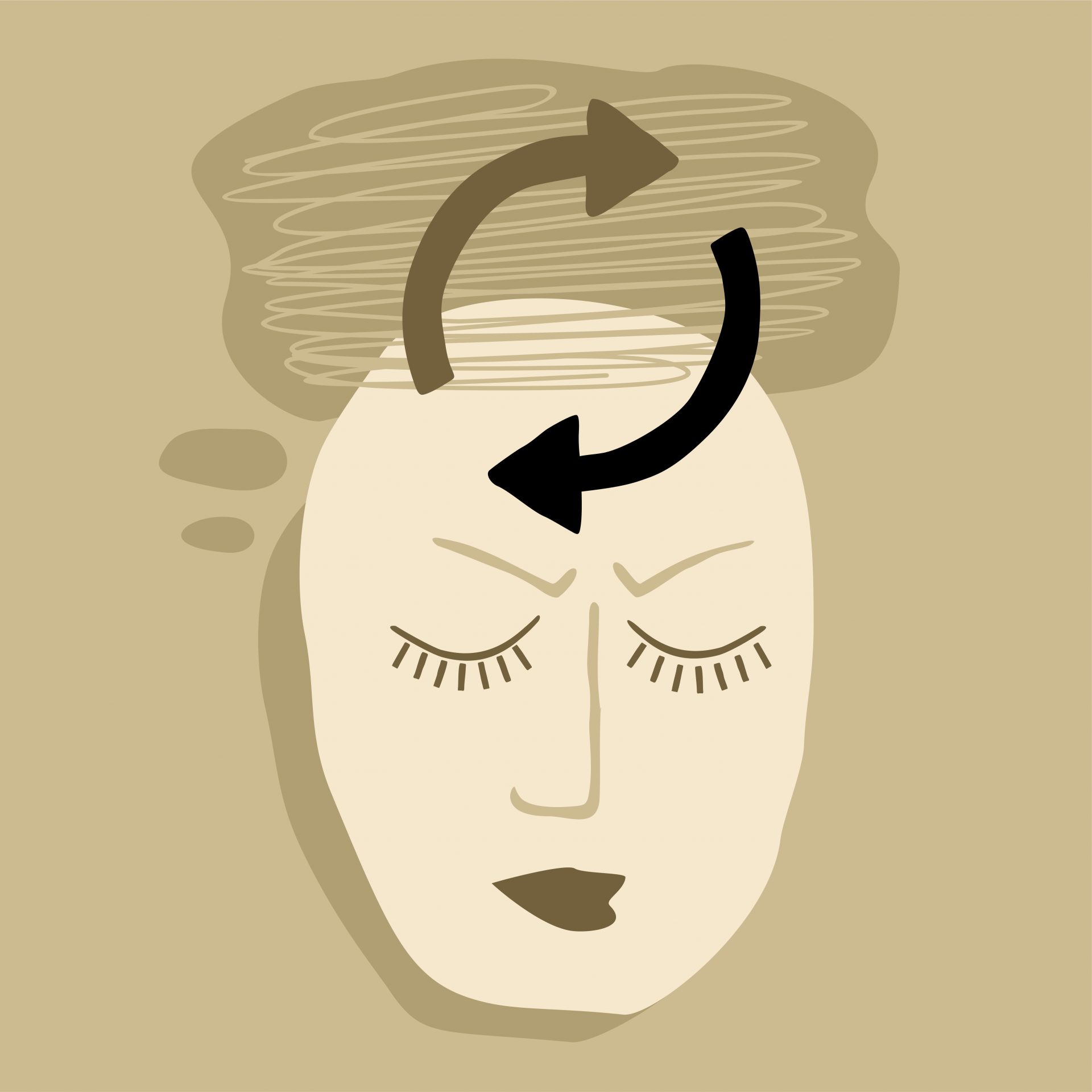Written by Amy Beecham
Do you find yourself replaying situations and past conversations in your head? You might be experiencing “rumination”.
We all have moments from our past that we replay in our minds. It might be an argument we lost, a task we failed or a mistake we made that caused someone else to hurt. We think back to the day and keep every possibility running through our minds. Should we have done something different? Was there any way the negative outcome could have been avoided?
We get stuck on that moment in our personal history and begin to beat ourselves up, wracked with guilt and regret over a situation we can no longer control.
According to psychology, this practice has a name: ruminating. And it could be more damaging than we realise.
In a recent Instagram post, therapist Amber Elizabeth Smith explained that while rumination is a completely common human experience, we still need to watch out for the signs and take action when we feel ourselves slipping into the mindset.
“Rumination happens when we have a desire to solve a problem that is plaguing us,” Smith wrote.
“We believe that by replaying a situation, we may come up with a new solution and find relief.”
However, what often happens is that we become stuck in a cycle of anxiety and overthinking.
“Reflection and processing are necessary for growth, but at what point is it turning into obsessing?” Smith asks.
She says that focussing on a problem, past or present, for more than a few minutes is a key sign that you’re ruminating and may need to alter your thinking.
Feeling worse or overwhelmed by the memory of an action also indicates rumination, as you feel no movement towards acceptance or moving on despite the time that has passed. When this happens, you might feel physically distressed or like there’s no viable solution, she says.
It makes sense: replaying the same situation over and over again can’t be healthy. So how can you begin to unravel your ruminating thoughts and move towards a more productive method of reflection?
Smith says the key is to recognise the root of your need to ruminate. “Likely, this is about control, safety and validation,” she suggests.
When you notice yourself ruminating or beginning to overthink the past, Smith advises attempting to distract yourself. “Address the rumination by trying out a new action,” she says.
If it’s a friendship break up occupying your mind, make a choice whether to reach out to that person or unfollow their accounts. Remaining in a relationship limbo makes it easier for “unfinished” business to take up head space. It’s either time to make amends or gain some much-needed distance to move on.

Smith also suggests that much of our ruminating can come from pressure for perfectionism. When we hold ourselves to a high standard – be it in our personal lives, academically or at work – it can be painful when we fall short, causing us to turn inwards and contemplate how we could have avoided the disappointment.
However, by making a note of what triggers this spirals of shame or low self-esteem, we can make steps to avoid them, says Smith.
“What situations or mediums enhance your rumination?” she asks. “What conversations, places or people?”
Ultimately, it’s absolutely natural to want to reflect on the things that have happened in our lives, good and bad. But when it becomes a dominating thought pattern that leaks into our everyday mental health, it’s something we should make sure to keep mindful of.
If you, or someone you know, is struggling with their mental health or emotional wellbeing, you can find support and resources on the mental health charity Mind’s website and NHS Every Mind Matters or access the NHS’ guide to mental health organisations here.
If you are struggling, you can also ask your GP for a referral to NHS Talking Therapies, or you can self-refer.
You can also call the Samaritans in the UK on 116 123 or email [email protected] for confidential support.
Images: Getty
Source: Read Full Article



